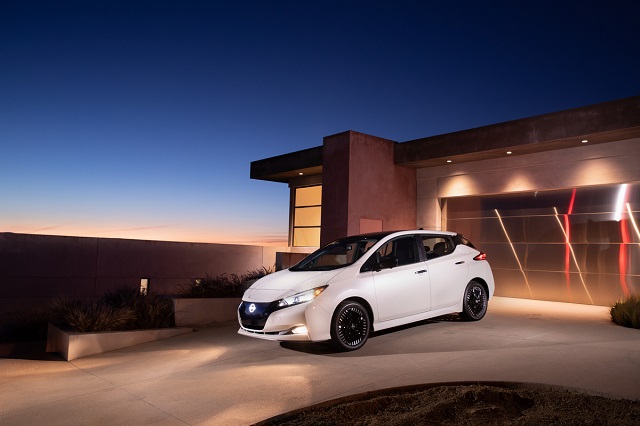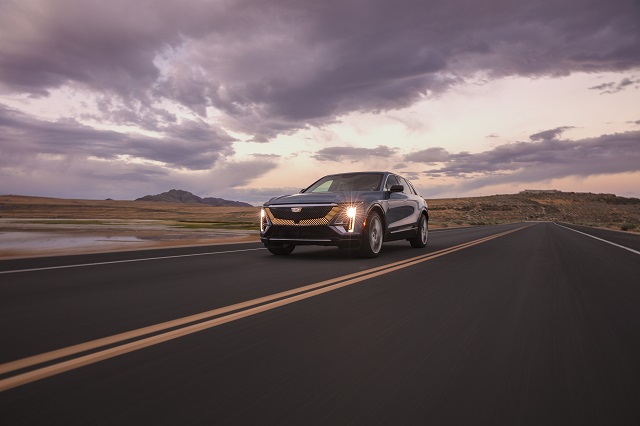Look at any survey of the most important factors consumers consider when buying a car and you’ll find safety consistently at or near the top. It should come as no surprise, especially considering accidents of all kinds are a leading cause of death in the United States, with traffic fatalities specifically on the rise. With that in mind, as well as knowing that electric vehicles are still growing and evolving, the safety of this vehicle class is obviously going to come under scrutiny. Add in the fact that EVs have significant mechanical and engineering differences compared to traditional gas-powered vehicles and we’re left with one all-important question: Are EVs safe?
Safety of EVs Compared to Gas Vehicles
As data continues to roll in, all signs point to EVs being at least as safe as conventional cars. In fact, some studies suggest that, as a whole, EVs are more crashworthy than their gas-powered counterparts. This is partly due to the general weight discrepancy between the two. EVs weigh more than similar-style gas-powered cars, mainly because of the large batteries needed to power them. Heavier vehicles are more likely to continue moving forward in a collision, subjecting the passengers to less force and reducing the chance of injury. The weight of EV batteries, as well as their location along the bottom of the car, is also a safety advantage, creating a low center of gravity that makes them more stable and reduces the likelihood of rolling over.

EV Safety Features
The vast majority of car crashes are caused by human error, which can be mitigated by advanced driver assistance systems. These systems utilize various safety features that reduce the likelihood of motorists making such mistakes while operating vehicles. Some commonly utilized technologies include surround view cameras, forward collision warning, lane keeping assistance and adaptive cruise control.
You’ll find advanced driver assistance systems available in EVs, either standard or optional, just as you would in traditional gas-powered cars. This is true even amongst the most affordable models. The Nissan Leaf, the least-expensive EV on the market, comes standard with a suite of six advanced safety features, including automatic emergency braking and blind spot and lane departure warning.
Safety Ratings
Any and every EV model available for sale in the United States must undergo the same safety testing and meet the same Federal Motor Vehicle Safety Standards as conventional vehicles. As a whole, you’ll find that these vehicles meet or surpass the safety ratings of similar gas-powered cars.
In 2023, 10 EVs, including the Tesla Model Y, Genesis Electrified GV70, Hyundai Ioniq 6 and Lexus RZ, earned Top Safety Pick+ Awards, the highest honor from the Insurance Institute for Highway Safety.
EVs also led the 2023 AAA Car Guide, making up seven of the top 10 highest-scoring vehicles in all categories. The annual guide ranks new cars based on 13 criteria, including safety features. The Rivian R1T Adventure, which won the pickup category, was also named Top Safety Pick+ by the IIHS.
Fire
Recent headlines have suggested that fires are more likely to occur in EVs than gas-powered cars, either spontaneously or after a collision. Not only is there no evidence to support this, recent statistics show the opposite may be true.
It makes sense that gas-powered vehicles may be more prone to fires because their engines are powered by combustion – a constant series of tiny explosions. EV batteries, on the other hand, need time to create enough energy (and heat) to even reach a combustible temperature. Mechanical and electrical fires are also more common in older cars. With EV adoption still in its early years, there aren’t nearly as many older EV models on the road as gas-powered vehicles.
But while EVs don’t appear to be more prone to fires, they do pose a greater threat should a fire erupt. Lithium-ion batteries, which power most EVs, burn at a far higher temperature than other material, making them more difficult to extinguish. Additionally, under certain conditions, lithium-ion batteries can reignite, adding to the increased risk.
Visit AAA’s Electric Vehicle platform for more information on these cars of the future.













